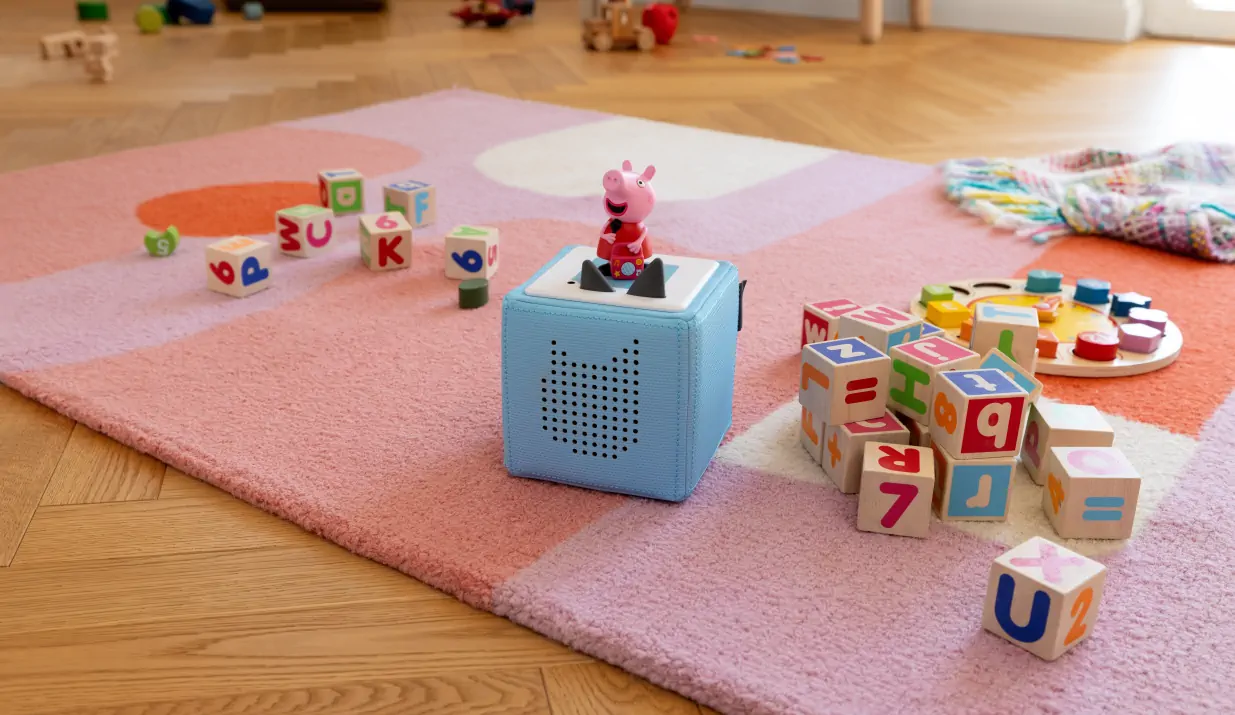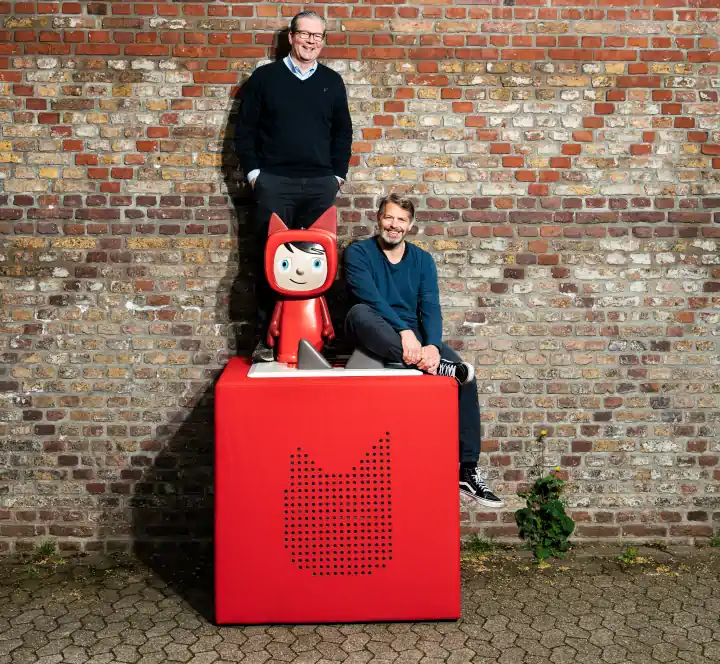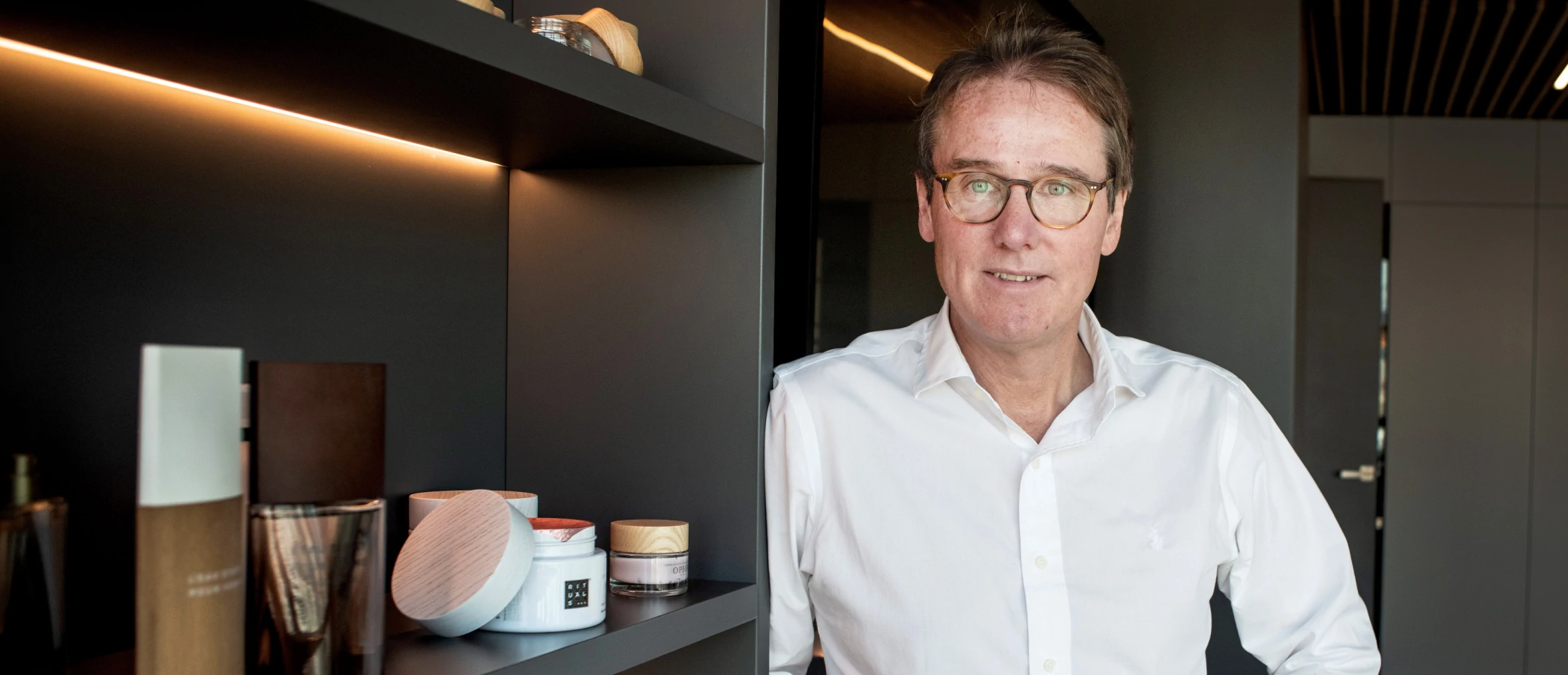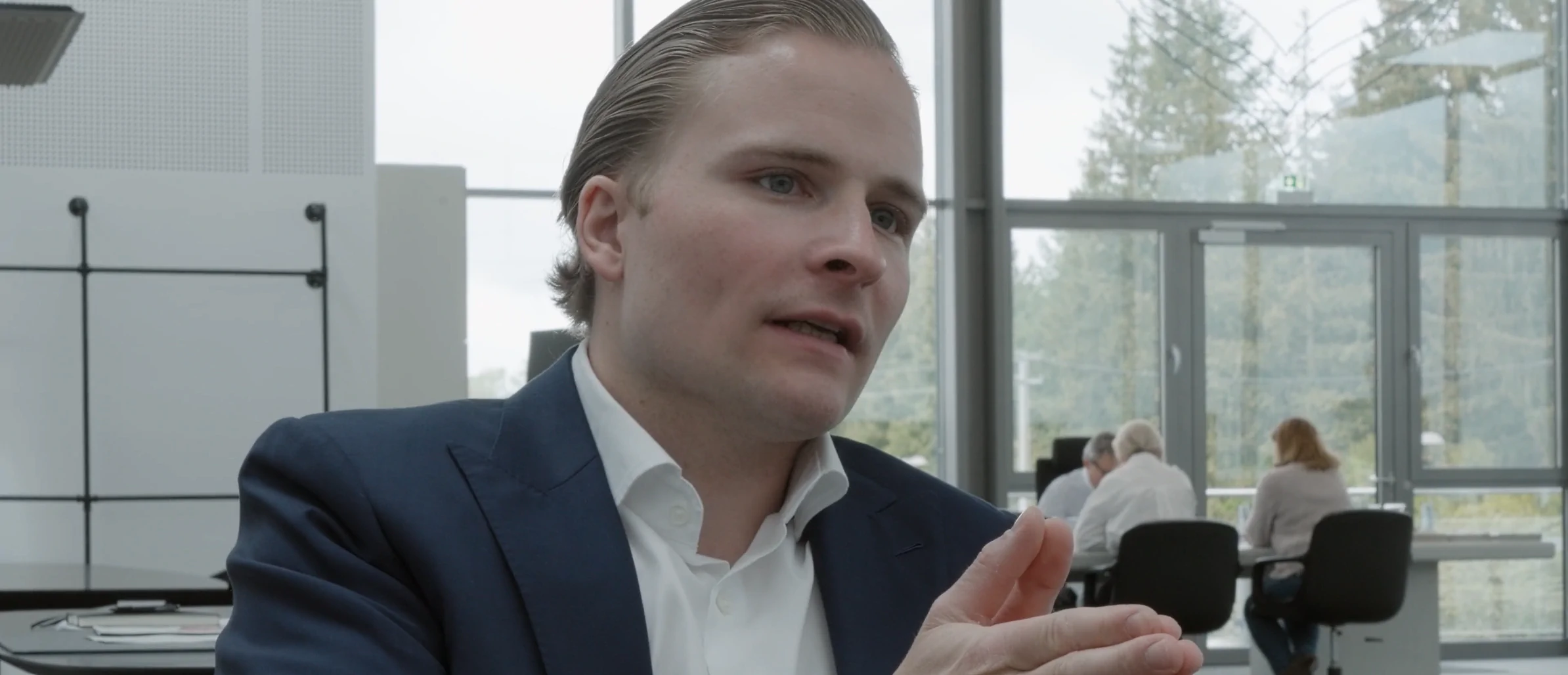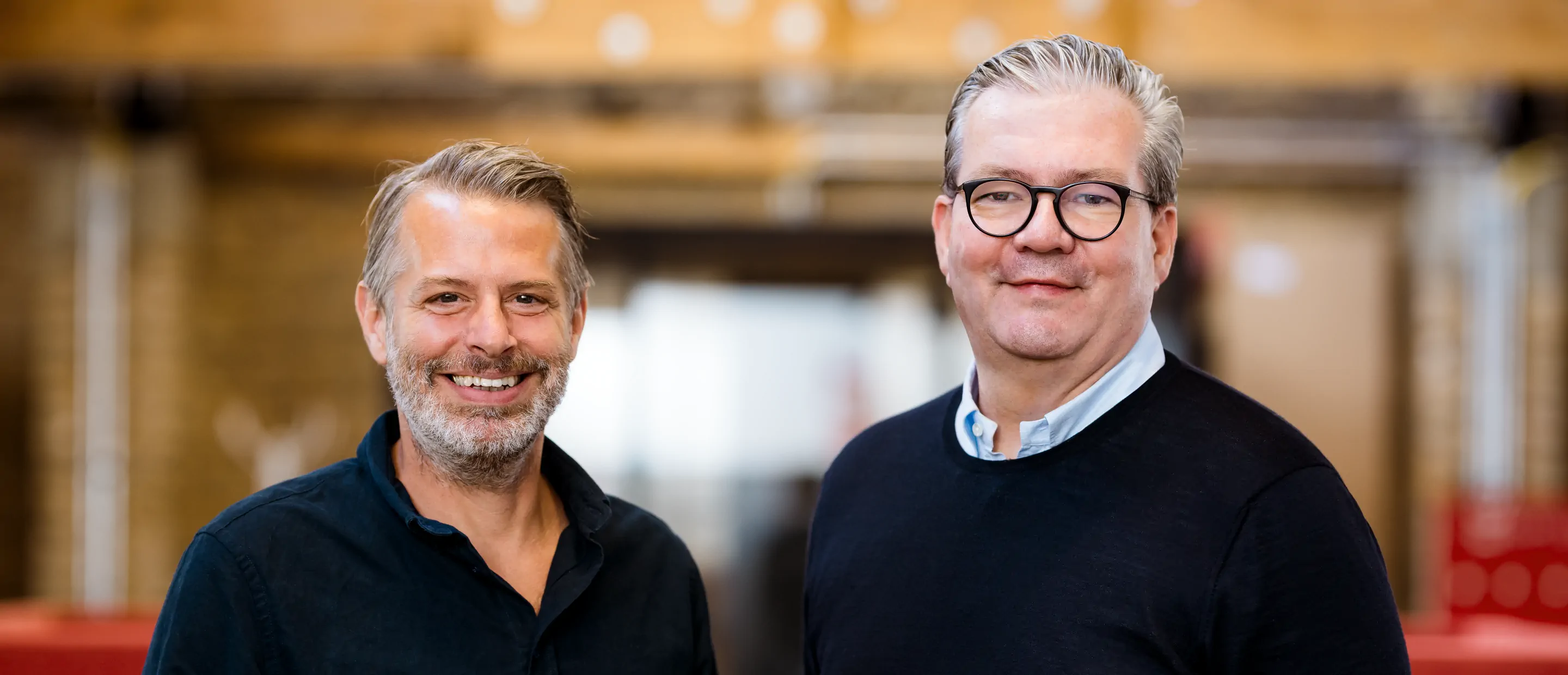
Turning Points – Patric Faßbender & Marcus Stahl
The founders of the "Toniebox" explain how knowing their own strengths and weaknesses helped them build a bestselling toy brand – then step back from leadership at the right time.
A German success story in fast-forward: In just ten years, Marcus Stahl and Patric Faßbender made the “Toniebox” big, brought it to market in the U.S., and went public, only to step down at the peak of their success. Their advice to other founders? Be honest with yourself, as well as courageous.
It didn’t spark at a meeting or conference, but: in kindergarten. Stahl and Faßbender were involved on the board there. “We weren’t directly friends,” Stahl recalls, “but we got to know and appreciate each other.” Opposites attract: the creative in a flannel shirt, then with long hair, and the more conservative engineer. Or, as music lover Stahl puts it: “Here punk, there classical.”
In 2013, Faßbender approached Stahl with a project that had only an indirect connection to kindergarten. He had an idea. And it was so big that he quit his job in advertising and said, “I’m doing this now.” The Düsseldorfer was repeatedly annoyed by the broken CDs of his daughters, who loved audiobooks. So he looked for an alternative. A child-friendly alternative – and he didn’t see it in MP3 players and iPhones. Thus, the idea for the Toniebox was born, an audio cube on which children place figurines that then trigger stories.
The trained graphic designer Faßbender had support from his wife, an illustrator: “But it was clear: I needed someone who brought other skills. I covered all the creative aspects well, but I wasn’t interested in finances and numbers, so Marcus came to mind.”
Why entrepreneurs can benefit from ignorance as well as experience
This was in the spring of 2013. Both were in their early 40s – too old to be founding? “That also has advantages," Stahl says. "We had built a large network, knew many people. That accelerated a lot.” He would advise anyone with full conviction to start a business in their 40s and even 50s.
Another secret of success revealed by Faßbender: “It’s a huge advantage if you initially have little knowledge of a topic because you approach new topics much more openly. You have a much broader spectrum of possible answers to questions.”
For him, it was clear at the time: “We’re marching off now.” But to march, they also needed a strong financial partner. They found this in 2015 with Deutsche Bank, which provided the necessary growth financing and working capital, and was a constant local contact in Düsseldorf. “Deutsche Bank believed in us early on and has been a great partner to this day,” says Stahl. “It’s a very, very trusting collaboration.”
How tonies proved a perfect fit for the U.S. market
tonies developed rapidly from the start, becoming profitable in its second year. “The business forecasts were always wrong,” laughs Stahl. Production of the boxes started in 2016. By 2017, tonies had sold 148,000 units. In 2018, it was 600,000, and in 2021, for the first time, more than a million in a year. This huge acceleration in growth was the result of international expansion, Faßbender explains: “We wanted to be in children’s rooms worldwide.” The start was in the UK, but that was just the bridge to a much larger market: America. In 2020, tonies entered the USA for the Christmas season. Faßbender: “An incredibly large country that is very demanding in terms of communication, sales, logistics. But we were just up for it.”
And U.S. buyers were up for tonies. The U.S. immediately boosted sales and is now the company’s largest market. Then the next milestone: going public in November 2021. tonies was valued at 1 billion euros at the start. Subsequently, the company grew to 600 employees and around 360 million in revenue in the 2023 fiscal year. For the two founders, still in operational leadership, the time came when they asked themselves, “Are there people who can do this better than us,” Faßbender recalls. He and Stahl doubted at the time that they were the right ones “to scale further.” Stahl adds: “The company had reached a size that required different structures, different processes, and different people in management.”
Stepping back from company leadership: two tips for a smooth transition
So they decided to step down from leadership and withdraw from the board. What followed was described by Manager Magazin as something that “rarely works”: “a smooth handover to a new CEO from outside.” How did it work? “The most important point was that it was triggered by Marcus and me, says Faßbender. “We wanted to take this step.” The second important point: “One of our abilities is that we can recognise people well – and we had a very good feeling about Tobias from the beginning.” Tobias refers to Tobias Wann, who was still CEO of the software company Xempus in 2023. He emerged as the successor from about 15 candidates who came forward in many conversations. They spent a lot of time together before Wann took over at the beginning of 2024. Today, Stahl and Faßbender lend tonies their support as consultants.
At present, they are rarely in the company in downtown Düsseldorf. They share an office, are the second-largest shareholders at tonies, and, as investors, they are looking for similarly inspiring ideas. From two fathers who appreciated each other, they have become not only successful founders but also close friends. Faßbender offers one main insight to people who want to follow in their footsteps: “Making decisions is the most important thing. Even if they are wrong. Then you can revise them.”
Timeline: tonies' turning points

Founding
Patric Faßbender has the idea of a playful audio box for children and inspires his daycare acquaintance Marcus Stahl with it. Together, they found Boxine GmbH.

Production Start
The first Tonieboxes with a total of 14 figures hit the market. The first figure is "the lion who couldn't write", with German public-broadcasting institution WDR as the first licensor.

Growth Surge
After selling 30,000 units in the first year, annual sales rapidly grow to 140,000 boxes.

International Expansion
Tonies expands to the U.K. and Ireland.

Milestone
Tonies takes the leap into the U.S., which is today the company's largest market.

IPO
Boxine goes public and renames itself Tonies SE. The company is valued at 870 million euros.

Exit
The two founders decide to step down from the management of the company and move to the supervisory board.

Leadership Change
Software manager Tobias Wann becomes the new CEO on January 1.
The Bank for Entrepreneurs

Helping entrepreneurial families manage their business and personal finances since 1870
For the entrepreneur, every business decision is also a personal one. That's why the Bank for Entrepreneurs combines our strengths in Wealth Management and Business Banking with those of our Corporate Bank and Investment Bank, and makes them accessible via one point of contact. Discover how we can support you and your family at each stage of your business journey using the link below.
Some services of our Bank for Entrepreneurs offering are only available for clients meeting certain eligibility criteria – contact us to learn more.
